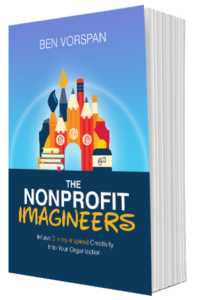
Nonprofits play a crucial role in addressing global issues, including the promotion of peace and the fight against hate and racism. While specific events related to Israel may be one aspect of your mission, and are certainly on the minds of many of your supporters, it’s essential to broaden your reach and impact to continue to provide a way for your supporters to make a difference without feeling burnt out. In this article, we’ll explore five program and event ideas that nonprofits can organize to foster unity and combat discrimination, without being tied to a specific region or conflict.
- Diversity and Inclusion Workshops
Host workshops that focus on diversity and inclusion in your community. These workshops can bring people from various backgrounds together to discuss the importance of creating inclusive spaces. Experts can lead discussions on topics such as unconscious bias, cultural awareness, and the benefits of diversity in all aspects of society.
Encouraging participants to share their experiences and perspectives can create a greater understanding of the issues surrounding hate and racism. By fostering inclusive environments, your nonprofit contributes to the broader goal of combating discrimination.
- Cultural Exchange Events
Cultural exchange events allow communities to embrace diversity and celebrate different traditions, languages, and customs. Organize events where people from various backgrounds can share their cultures through music, dance, food, and art. These events can help break down stereotypes and foster mutual respect.
For instance, consider organizing a multicultural food festival, where people can savor dishes from around the world and engage in conversations with those from different cultural backgrounds. This not only promotes peace but also helps dispel negative perceptions related to racism and hate.
- Community Dialogue Circles
Create safe spaces for open dialogue and discussion about issues related to hate and racism. Community dialogue circles provide individuals with the opportunity to express their concerns, share experiences, and find common ground with others who may have different perspectives.
Nonprofits can facilitate these circles, encouraging participants to listen, learn, and empathize with one another. The focus is on fostering understanding, unity, and a shared commitment to eradicating discrimination.
- Youth Empowerment Programs
Empower the next generation to be champions of peace and tolerance. Nonprofits can develop youth-focused programs that encourage leadership, empathy, and social activism. These programs can include mentorship, leadership training, and educational opportunities that focus on global issues.
For example, a nonprofit could establish a youth ambassadors program, where young individuals learn about global conflicts and engage in local initiatives that promote peace, diversity, and the fight against hate and racism. Empowering youth to be agents of change is a powerful way to address these issues.
- Art and Music Festivals for Unity
Art and music have the power to bring people together and transcend cultural and racial boundaries. Organize art exhibitions, music festivals, or performances that convey messages of unity and peace. Invite local artists and musicians to contribute their talents to promote positive change.
For instance, a nonprofit could hold a community art project where people from different backgrounds collaborate to create a mural that represents their shared commitment to ending hate and racism. Music events featuring diverse performers can inspire unity and inclusivity.
Nonprofits can play a vital role in promoting peace and fighting hate and racism by organizing events and programs that encourage dialogue, understanding, and unity. By creating spaces for diversity and inclusion workshops, cultural exchange events, community dialogue circles, youth empowerment programs, and art and music festivals for unity, nonprofits can address these global challenges on a local level.
These initiatives not only contribute to the broader mission of ending discrimination but also serve as a reminder that unity and empathy are essential in the pursuit of a more peaceful and inclusive world. Nonprofits have the unique opportunity to lead these efforts and inspire positive change in their communities and beyond.
 Celebrate 2 years of Imagineering!
Celebrate 2 years of Imagineering!
Comments are closed